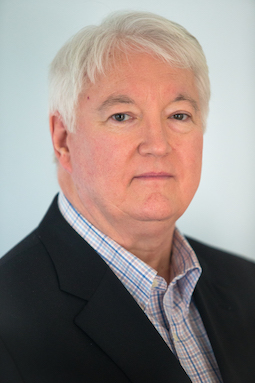
The Jennifer Horner Lecture in Bioethics Series will debut on March 28 from 10:45 a.m. to 2 p.m. at Ohio University’s Grover Center in rooms E234 and E238 featuring a lecture from Professor Bruce Jennings of Vanderbilt University titled “Bioethics as Civic Learning: Rethinking One Another in a Time of Interdependence.”
“This is a very gracious invitation and a lovely occasion. It’s a great honor to be invited to be the first speaker of this new series,” Jennings said.
Jennings is an adjunct associate professor in the Center for Biomedical Ethics and Society and the Department of Health Policy at Vanderbilt University School of Medicine. Previously, he taught for 20 years at the Yale University School of Public Health. His research interests include health policy, public health and clinical ethical issues in medical care near the end of life.
Associate Dean Emerita Horner, PhD, JD, retired from OHIO’s College of Health Sciences and Professions in May 2018 as a professor and associate dean for research and graduate studies. During a reception honoring Horner’s service to the college, Dean Randy Leite announced the formation of the Jennifer Horner Lecture in Bioethics Series to be held each spring and focused on ethical issues in biomedical and rehabilitation science research and practice.
“When the college honored my retirement by establishing the annual Jennifer Horner Bioethics Lecture, I recommended Bruce Jennings to be the inaugural speaker because of his substantial contribution to bioethics literature and the relevance of his work to our healing mission. His insights have had a significant impact on how I think about ethics as applied in real life, not merely as an intellectual line of inquiry,” said Horner. “In particular, I was greatly influenced by Mr. Jennings’ essay appearing in the American Journal of Physical Medicine and Rehabilitation in 1993. My favorite quote from this article entitled ‘Healing the self: The moral meaning of relationships in rehabilitation’ is: ‘To rehabilitate is to restore the power or capacity for living, where living does not signify merely biologic life and function but takes on a qualitative dimension. It is the restoration of the power of living well, living meaningfully, that rehabilitation essentially seeks’ (Jennings, 1993, p. 402).”
Jennings’ presentation will draw on his recent work on the theme of the moral meaning of relationships. Bioethics promotes perspectives and motivations that lead professionals and citizens to support and sustain just and ethical healthcare systems. In that way, he said, bioethics today strives to promote civic learning by reminding of the importance of mutuality, solidarity and interdependence. Jennings believes “The intellectual reorientation of the field of bioethics is moving away from a focus on the interests and health of individuals taken in isolation and toward a greater emphasis on the context or web of social and cultural relationships through which individuals come to have good health, meaningful self-identity and human flourishing.”
“This reorientation comes about through language and from there through thinking and action. Words and concepts shape our moral consciousness and moral imagination. This is what the field of bioethics is about,” said Jennings. “It’s about trying to develop and share with physicians, healthcare professionals and ordinary citizens a vocabulary that shapes our moral sensibilities, our moral convictions and moral awareness in a productive and constructive way so we can deal with the reality of health and illness that besets us as mortal human beings.”
After the lecture, a scene from the Merri Biechler play “Confessions of a Reluctant Caregiver” will be performed. The scene will launch a discussion led by Jennings and the day will end with a panel discussion on the ethics of end-of-life issues on case studies given to all attendees.